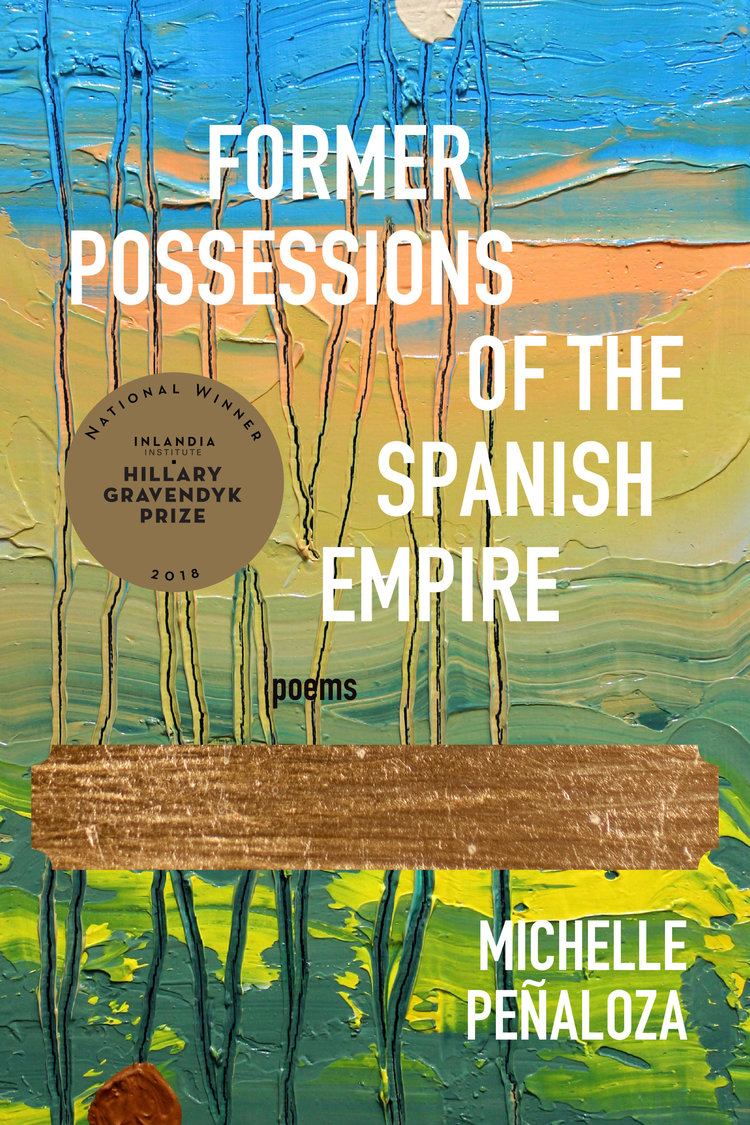Letting Michelle Peñaloza ask the questions

Two years ago, I interviewed poet Michelle Peñaloza as she prepared to move from Seattle to northern California. Peñaloza gave the best excuse for leaving Seattle: "I’m moving for love," she told me.
There are all kinds of love: romantic love, a love of place, a love of art. Peñaloza left to be closer to a person she loved, but it's her love of poetry that's bringing her back to Seattle next week with a brand-new book. Much of Peñaloza's first full-length poetry collection, Former Possessions of the Spanish Empire, was written here in Seattle, and she's coming to town for four events to launch the book into the city where it was born. (You can read more about the events — ranging from a traditional Elliott Bay reading to a karaoke banger — on Peñaloza's site for right now, but we'll be talking more about them on the Seattle Review of Books in days to come, too.)
Possessions is a beautiful, deeply personal collection of poetry, though on the phone Peñaloza seems reticent to accept that description. "I always hesitate to call poetry personal," she tells me.
"I think that the hesitation comes from the way that people conflate poetry with autobiography," she explains, "while fiction is fiction — someone's making that up, it's something that's created. But poetry we think just comes from one's journal, and it's not a crafted thing."
Of course, Peñaloza's poetry isn't personal like someone dumping a diary entry onto the page and messing with the margins a bit. What I mean by the word "personal" in this context is that it's deeply considered, and it's delivered with an intimacy that feels striking, as though she's in front of you, staring you in the eyes.
"What I was hoping would happen in this book is an engagement with that further intimacy," Peñaloza says, "but trying to play with it on a micro and macro level." In Possessions, she hopes to "make these big connections between something that in history happened hundreds of years ago that is still reverberating in the horrible phone conversation you have with an ex or something."
These poems examine huge questions of history and geography and race and power, and then they bring those examinations back to a more intimate level. Peñaloza reckons with and navigates the Philippines' long history of empire and sexism and faith and violence. (She writes, "We are a people built for disappointment/for tragedy and pain.")
The book is punctuated with a series of devastating poetic investigations printed in white on a solid black background. "A lot of my life I've spent as a woman of color in very white spaces," Peñaloza tells me. "And there are lots of questions that are asked, at least in my experience, of Brown bodies in spaces where they're perceived to not belong — i.e. white spaces. And so I think that that form came out of me just being annoyed by people's questions."
The first Q&A poem addresses those questions — or one question in particular: "where are you from?" Peñaloza always answers truthfully: she's from Nashville. But then comes the inevitable reply: "I hate, hate, hate, hate — I fucking hate — the follow-up," she says. To relate the question, she adopts a coy voice: "No, I mean really where are you from? But, I mean, like where are your parents from?"
These Q&A investigations set the tone for the rest of the book, and it's clear that Peñaloza isn't facing this self-interrogation for anyone else but herself. "Those were just really hard questions for me to answer. And it made me think, 'where is a way I can get to the truth through song or through lyric while answering these? So it became kind of like a call and response for myself, which was kind of cathartic."
A pause.
"But also fun."